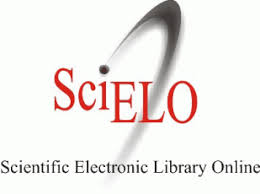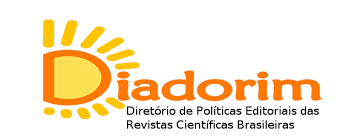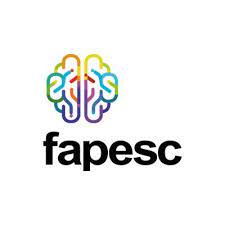Declaration of Ethical Conduct
EDITORIAL CODE OF CONDUCT
The journal Turismo: Visão e Ação ("Tourism: Vision and Action" in Portuguese) - TVA adheres to best practices in publication and research ethics, in accordance with internationally recognized guidelines, including the Code of Conduct and Good Practice Guidelines for Journal Editors, published by the Committee on Publication Ethics (COPE).
The policies and guidelines utilized by TVA are already available on the journal's website. Below, we outline the responsibilities of editors, reviewers, authors, and the editorial staff in the execution of their respective roles, in addition to the requirements outlined in the Submissions section.
Editors' Responsibilities
Editors have the responsibility to conduct themselves in an integrated, impartial manner, maintaining confidentiality and transparency throughout the scientific certification process of submitted articles, without any form of discrimination.
All submissions undergo a standardized procedure established by the journal, ensuring that articles are evaluated and accepted solely on the basis of their academic and scientific merit, without personal, commercial, or political influences.
Editors adhere to fair and consistent procedures in handling ethical or conflict situations, taking into account the prevailing legal requirements. They also provide authors with the right to respond to evaluation decisions they receive.
Responsibilities of Editorial Team Members
Members of the editorial team, including Section Editors, Reviewers, and Layout Designers, have the following responsibilities in carrying out their roles:
Ensure ethical conduct throughout all processes related to submission, peer review, and publication of the journal.
Uphold integrity, impartiality, confidentiality, and transparency in the scientific certification process of submitted articles.
Maintain a high standard of ethical conduct, integrity, impartiality, transparency, and prompt communication with all parties involved in the submission, evaluation, preparation, and publication of papers.
Notify the editor-in-chief promptly about any potential conflicts of interest that could compromise the integrity of their work with the editorial team.
Responsibilities of Reviewers
Researchers registered as TVA reviewers have the following responsibilities in the peer review process:
Contribute to the decision-making process for the publication of scientific articles, significantly improving the quality of the published work. Reviews should be conducted objectively and within the accepted evaluation period in the editorial process.
Maintain the confidentiality of any information received from the editor or the author(s). It is strictly prohibited to retain or copy the manuscript.
Display respect and cordiality towards the author(s) during the review process. Reviews should be objective, avoiding personal biases. Opinions and suggestions should be clear and supported by arguments aimed at improving the work. If the reviewer suggests their own (or associates') citations, it should only be done in cases of genuine collaboration.
Notify the editor if they come across content that has been published or submitted with suspicions of copyright infringement, plagiarism, or self-plagiarism. This includes content substantially similar to the work under review. Reviewers should also alert the editor about any conflicts of interest that may compromise the integrity of the evaluation process.
Author Responsibilities
Authors who submit their manuscripts to TVA are responsible for adhering to the journal's submission policies and guidelines, including those pertaining to the type of scientific article, originality, and ethical and methodological requirements outlined in the "Conditions of Submission" and "Guidelines for Authors."
The submitted article must be unpublished and should not be concurrently under evaluation or published in any other national or international journal, conference proceedings, or websites.
Authors, upon submission, acknowledge and agree to the originality clause. They understand that if any ethical irregularities regarding the publication arise, even after the article has been approved and published on the journal's website, it will be promptly withdrawn, and a notice will be provided stating that "the article was removed due to ethics in publication."
Authors are responsible for maintaining the integrity of the data presented in the article and ensuring proper citation and identification of sources when using third-party materials.
It is crucial that authors avoid including slanderous or defamatory statements in their articles and that they do not infringe upon any intellectual, commercial, or industrial property rights of third parties. Authors must disclose any potential conflicts of interest arising from their article.
During submission, the corresponding author must confirm that all co-authors who have signed the submitted work have made substantial contributions to its creation and preparation. Additionally, all authors must be registered on the journal's website.
Authors have an obligation to promptly inform the editor if they discover any flaws in their article and to contribute to its immediate correction, either before publication or by publishing an erratum if the error is identified after publication.
Use of Artificial Intelligence (AI) and AI-Assisted Technologies in Scientific Writing
This policy specifically addresses the process of writing manuscripts and does not encompass the use of Artificial Intelligence tools for data analysis and extraction, which form part of the research process. When it comes to writing, AI technology should be employed solely to enhance the quality of the text.
Authors should exercise caution and carefully evaluate the results when using AI-assisted technologies. They bear responsibility for the final content of the manuscript. A statement acknowledging the use of AI should be included at the end of the manuscript to ensure transparency and foster trust between authors, readers, and the editorial board.
It is understood that authors and co-authors are individuals capable of upholding the integrity of all aspects of the manuscript. They possess the authority to approve the final version and agree to its submission.
Authors and co-authors also have the responsibility of adhering to the publication ethics policy. Therefore, AI and AI-assisted technologies should not be listed as authors or co-authors. Authorship entails responsibilities and tasks that can only be attributed to and performed by human beings.
Duties of the Editorial Team Regarding Unethical Behavior
Any instance of unethical conduct identified in scientific papers published in TVA can be reported to the editor at any time by any individual, provided they furnish sufficient information and evidence to initiate an investigation.
It is important to collect evidence while refraining from spreading allegations beyond what is necessary for reporting purposes.
In all cases, the author must be afforded the opportunity to respond to any allegations made against them.
Our articles undergo a peer-review process to ensure the quality of scientific publications. They undergo an initial screening before being sent to reviewers, during which plagiarism detection software and tools to identify the use of AI are employed alongside pre-evaluation criteria.
The Editorial Team must inform and notify authors or reviewers when there appears to be a misunderstanding or misapplication of acceptable standards.
Cases that contravene these ethical standards may result in the retraction or formal withdrawal of the publication from the journal. Additionally, if unethical behavior is established through the investigation process, contributions from the implicated author will no longer be accepted.
Naturally, TVA operates in accordance with relevant legislation governing its activities, and cases not explicitly addressed in this statement will be handled by the Editorial Team, ensuring transparency regarding the decisions made in such instances.











